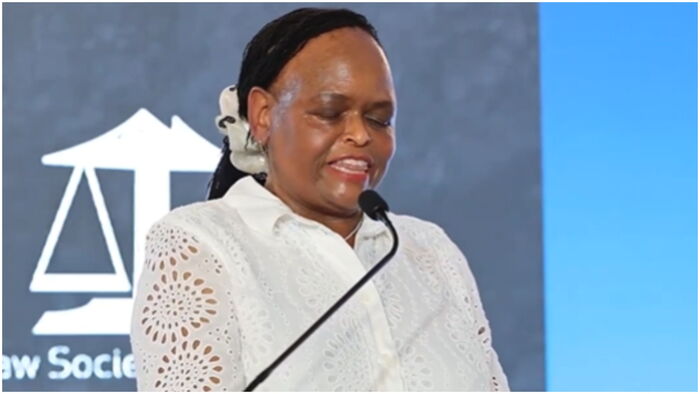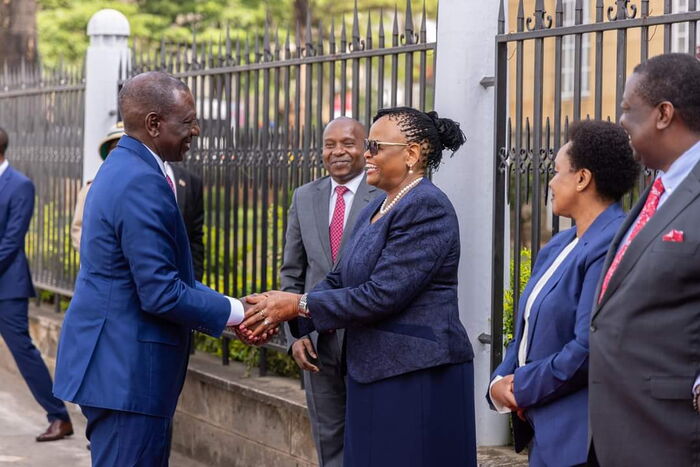Chief Justice Martha Koome has fired back at President William Ruto in a bold exchange over the fight against corruption. Speaking on Thursday, August 14, at the Law Society of Kenya (LSK) Annual Conference in Kwale, Koome strongly rejected the idea that anticipatory bail for corruption suspects is the real problem in Kenya’s justice system.
Her comments came just a day after President Ruto slammed the judiciary, claiming that anticipatory bail protects corrupt individuals and makes it harder to arrest and prosecute them.
Koome, who was the chief guest at the conference, stood firm and insisted that the law is clear, and that anticipatory bail is not the loophole the president is making it out to be.
“Anticipatory bail is a very interim relief and is issued for only 14 days. It cannot be a threat to the administration of justice,” Koome said.
The Chief Justice then delivered her sharpest point yet: the real danger to justice, she argued, comes from the withdrawal of corruption cases by the state.
“This is where the true threat lies,” she said, adding that dropping cases means suspects escape accountability entirely.
President Ruto had raised the issue during the National Devolution Conference on Wednesday, August 13. He described anticipatory bail as a “Kenyan innovation” that, in his view, sets the country back in the fight against graft.
According to Ruto, “Someone who has stolen public funds, going to court and getting anticipatory bail, makes it impossible for such a person to be arrested and prosecuted.”
But Koome countered by saying bail is a constitutional right, deliberately included in the legal framework to protect the accused until they are proven guilty.
She explained that bail terms are always meant to be reasonable and serve only one purpose, to ensure the accused attends their trial.
“The only concern is to ensure that the accused persons attend trial and nothing more. Appellate mechanisms exist to review the bail terms to ensure that they are reasonable. We do not need to be told how to do our jobs,” Koome declared.
Attorney Dorcas Oduor also weighed in, saying that while anticipatory bail is legal, its misuse is worrying. Some beneficiaries, she noted, wrongly believe it shields them from facing trial.
Still, Koome stressed the judiciary’s independence and warned against selective obedience of court orders.
“My position has been unequivocal. Any party aggrieved by a judicial decision, even the government, must seek redress through appeals or reviews – not through defiance or vilification of judges or judicial officers,” she said.
Her remarks drew applause from the audience, with many lawyers nodding in agreement.
LSK President Faith Odhiambo also backed Koome, saying anticipatory bail is a standard legal tool found in many countries, not a Kenyan invention.
“Having anticipatory bail does not mean endorsing crime. It simply ensures fairness in the justice process,” Odhiambo said.
The debate comes as Kenya continues to grapple with a massive corruption problem. A recent report by the Ethics and Anti-Corruption Commission (EACC) revealed that the country loses about Ksh608 billion every year to graft. That’s around 7.6% of Kenya’s total GDP.
Koome warned that without serious prosecutions, the fight against corruption is already lost, regardless of whether suspects get bail.
Her comments are likely to deepen tensions between the judiciary and the executive, especially as both sides publicly trade accusations over who is responsible for weak anti-corruption results.
While Ruto insists bail is the weak link, Koome is making it clear: the real rot is in the failure to follow through with cases and bring powerful suspects to justice.






